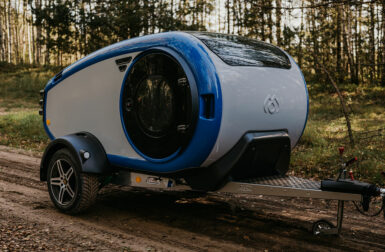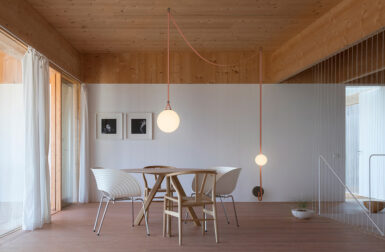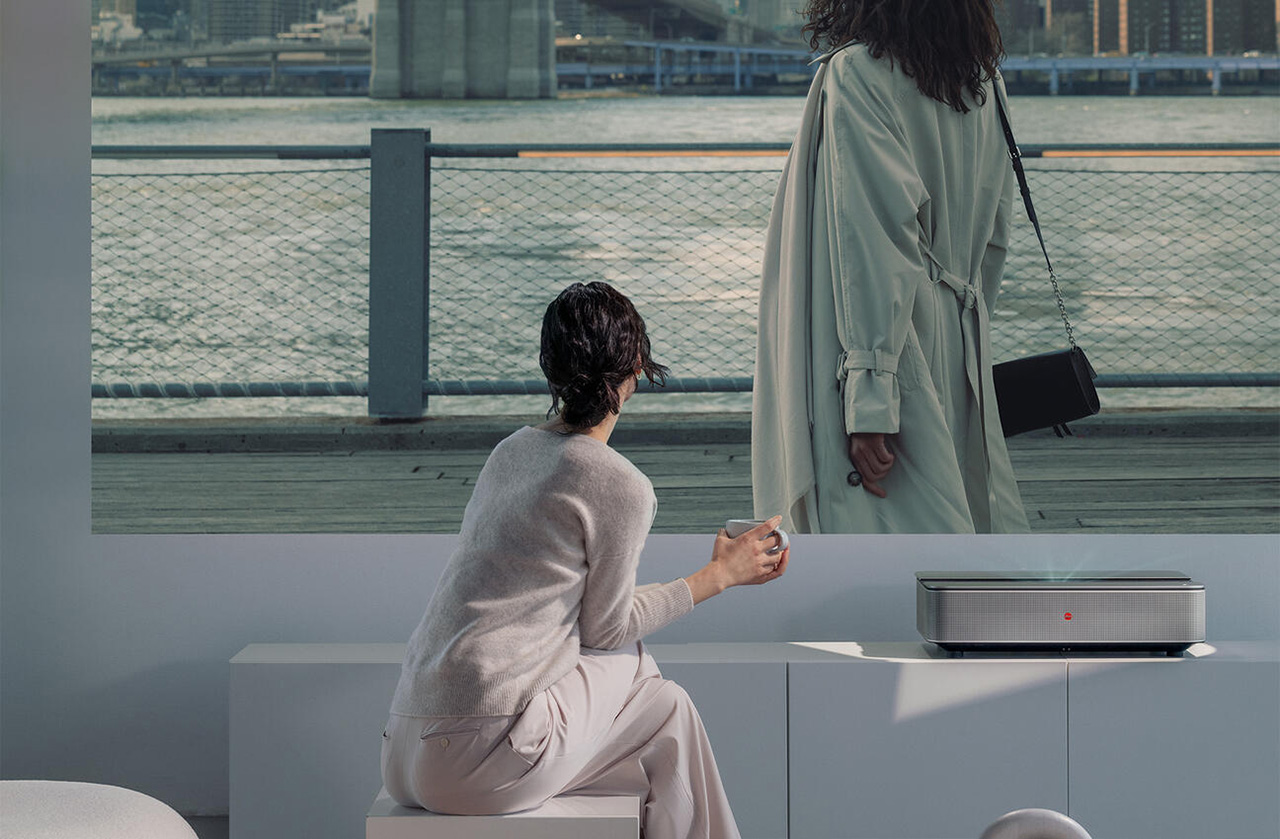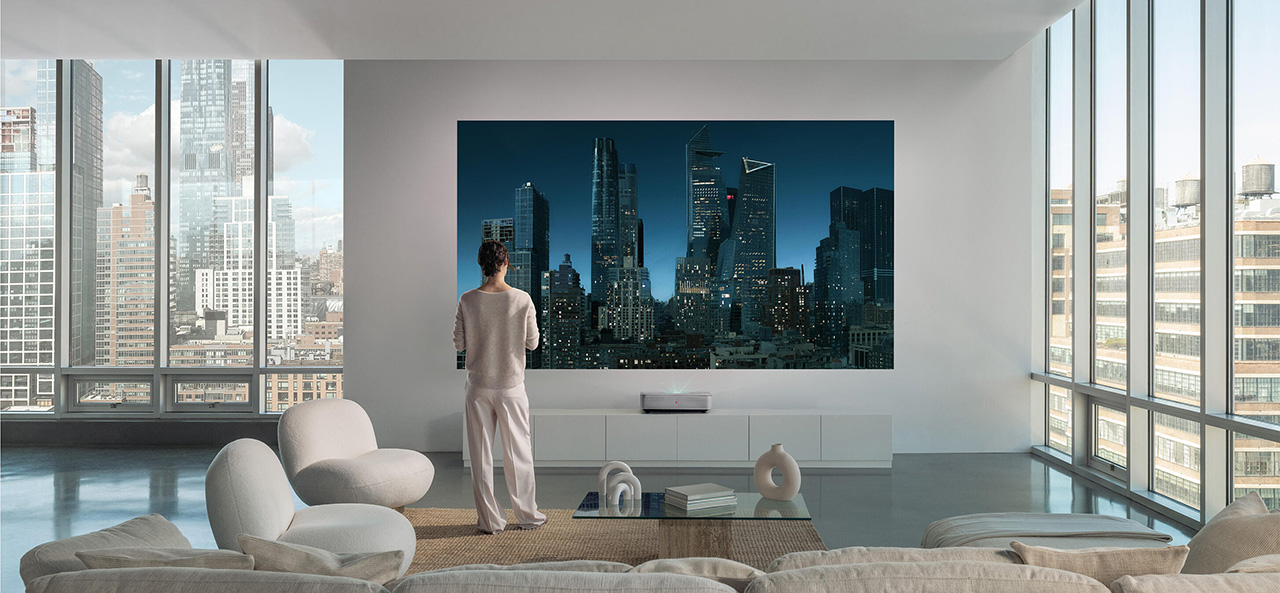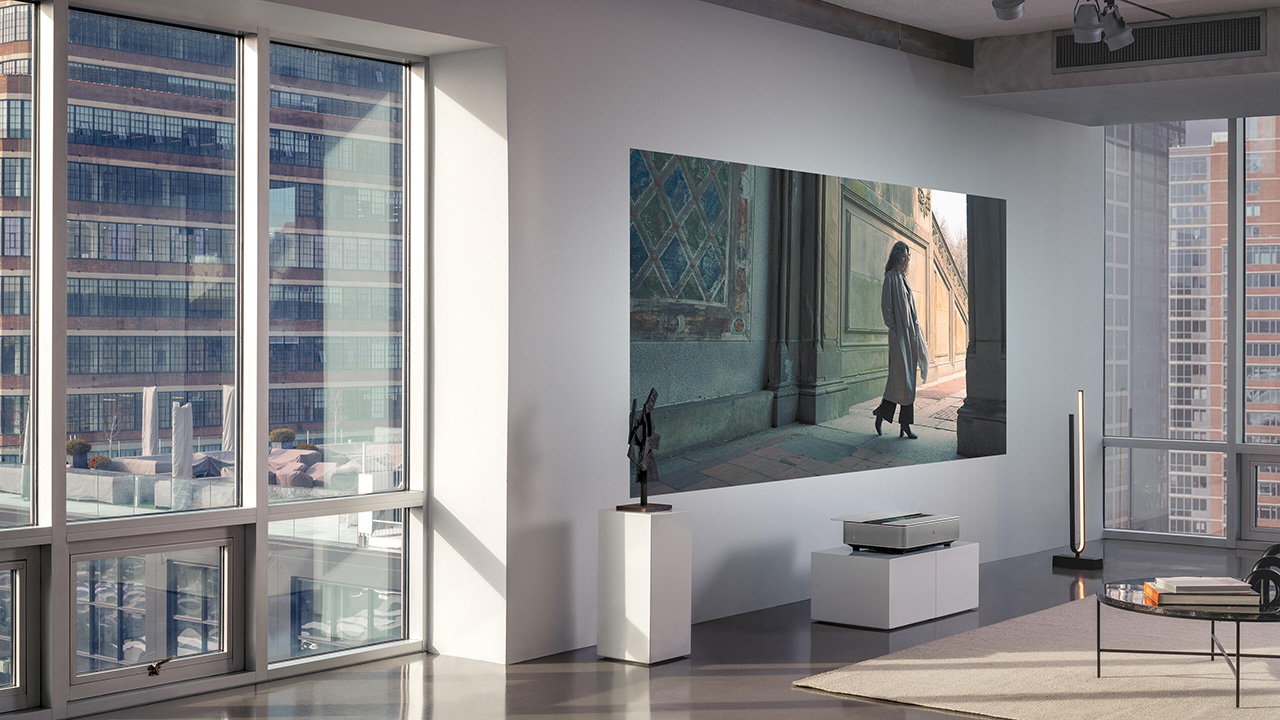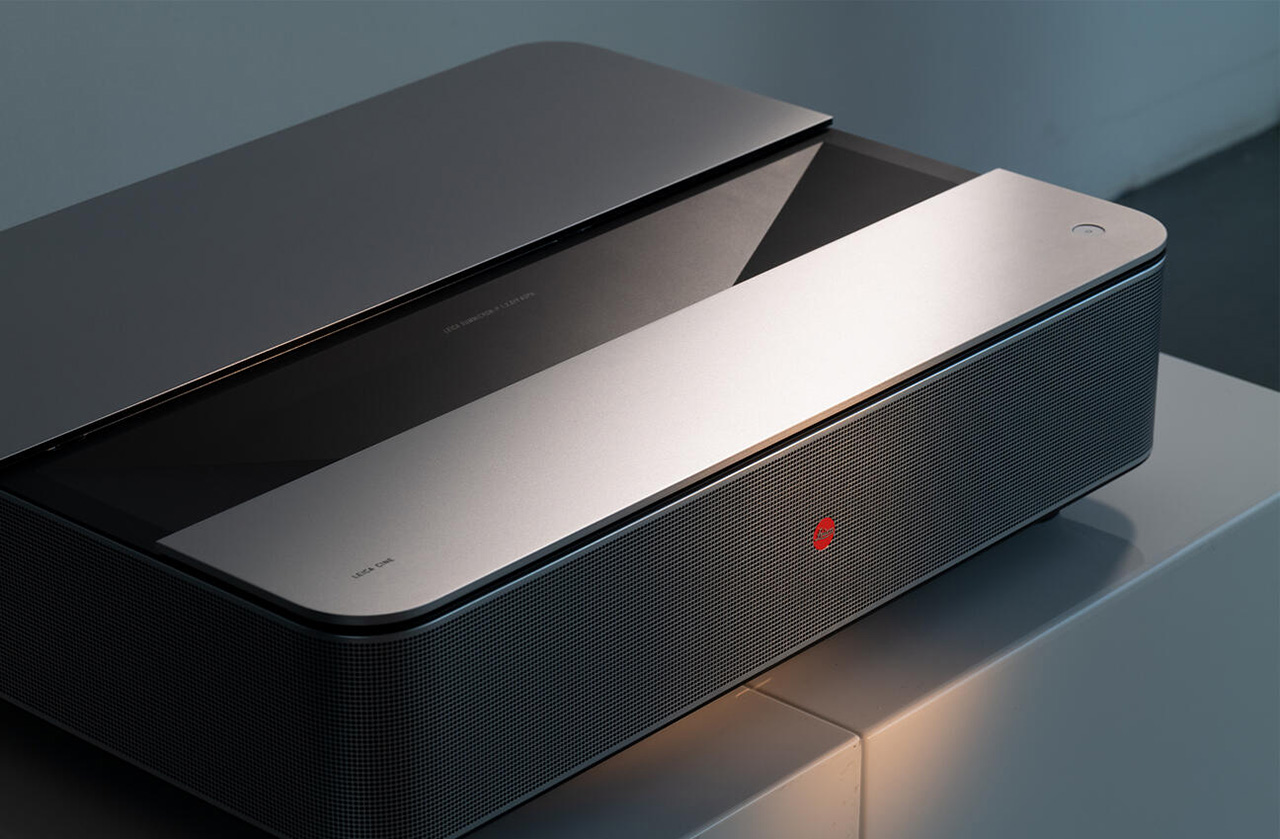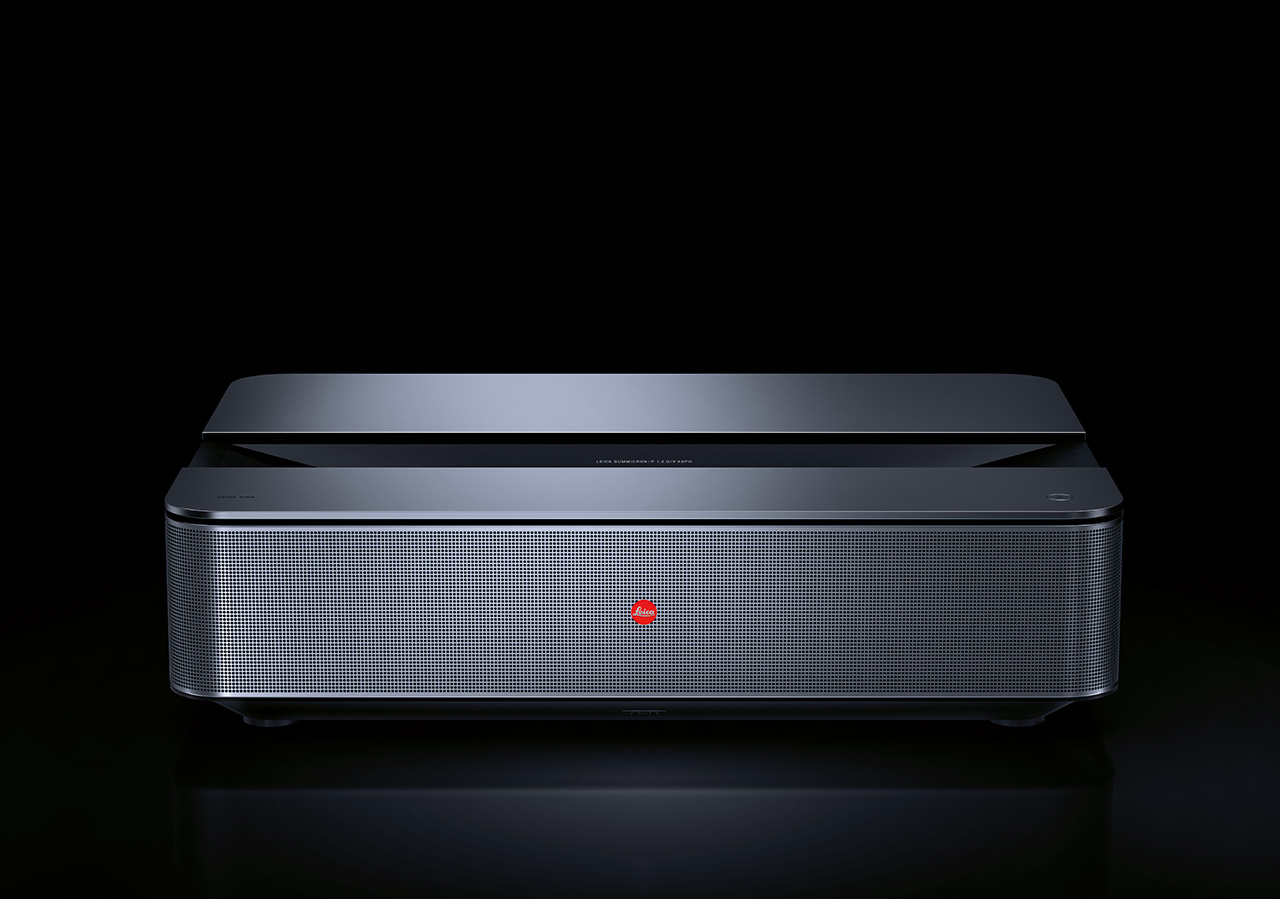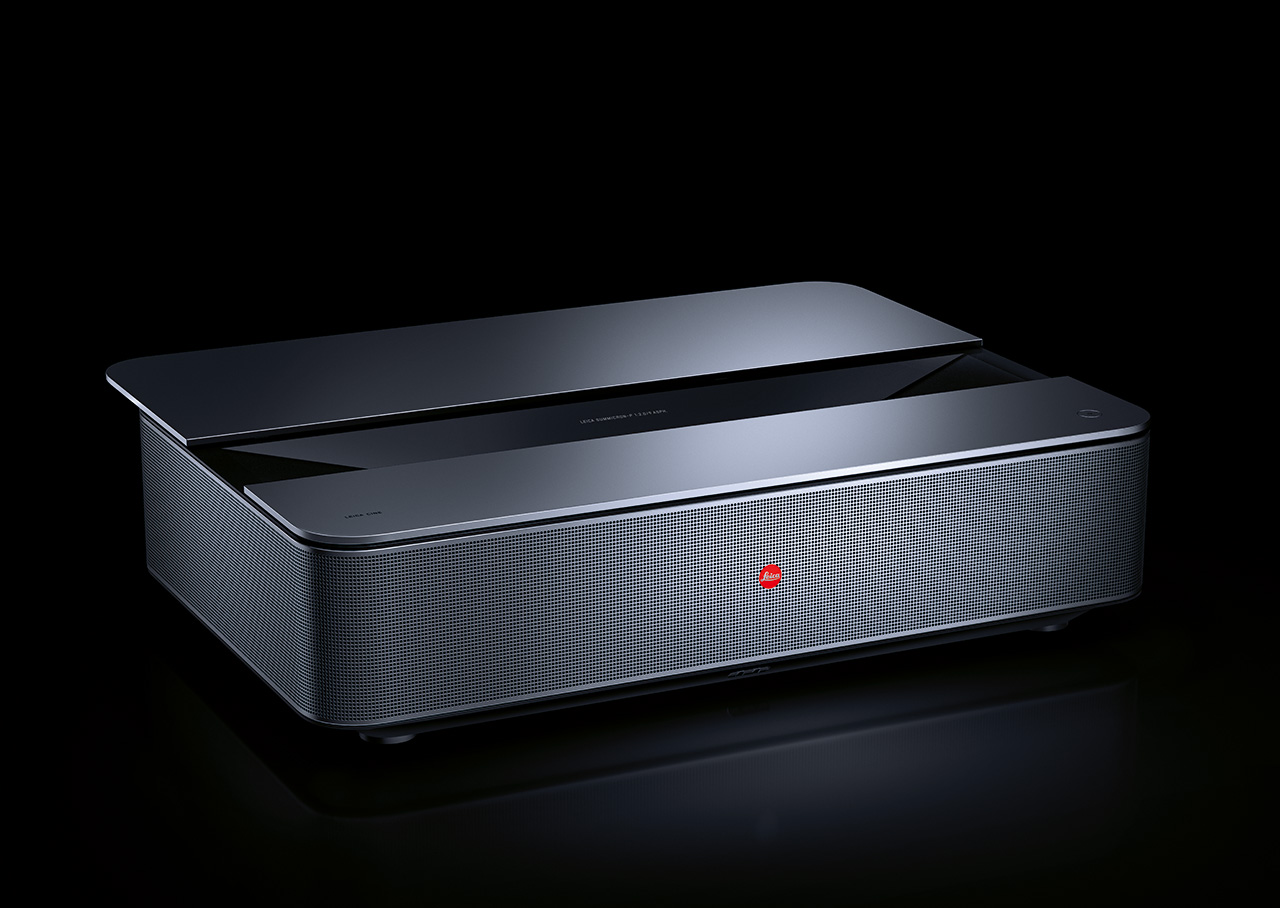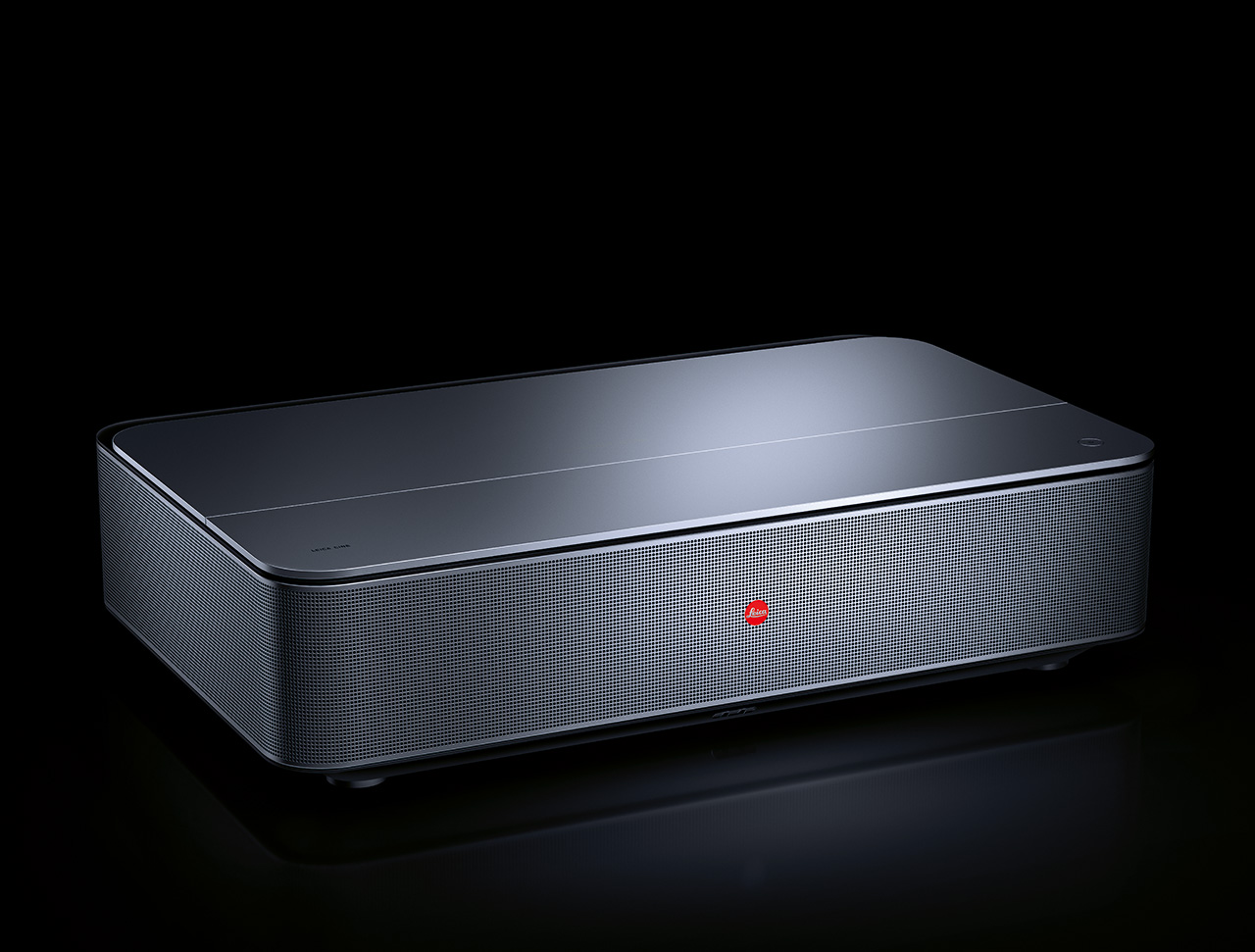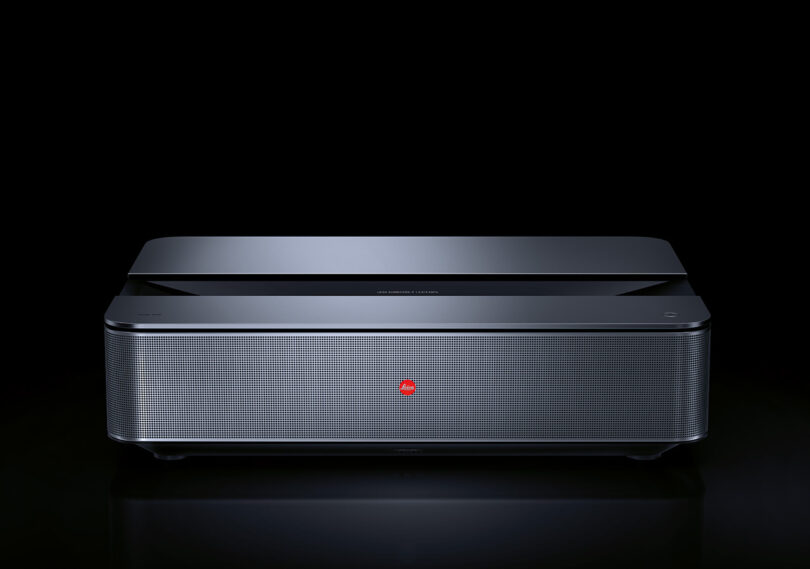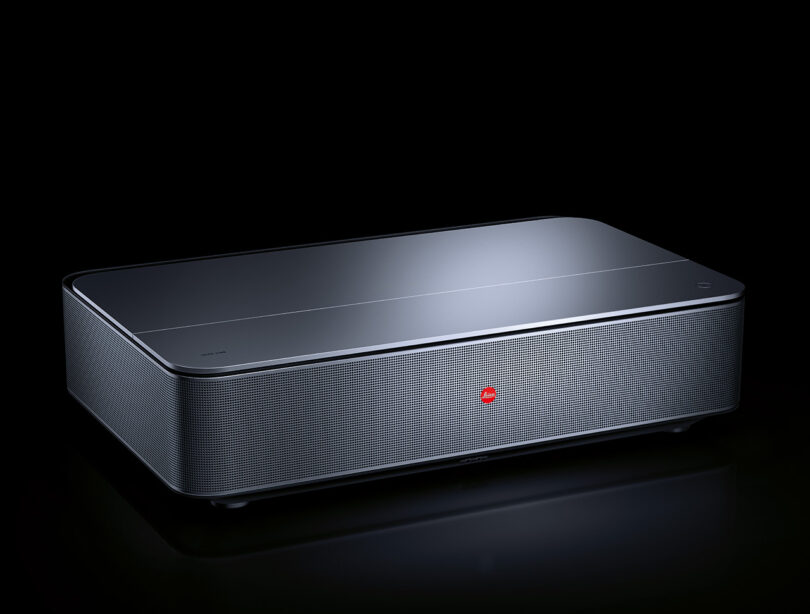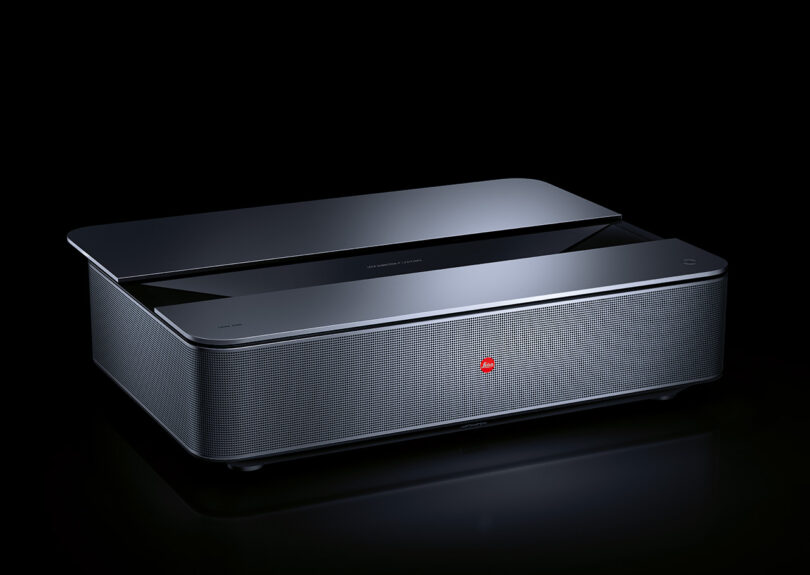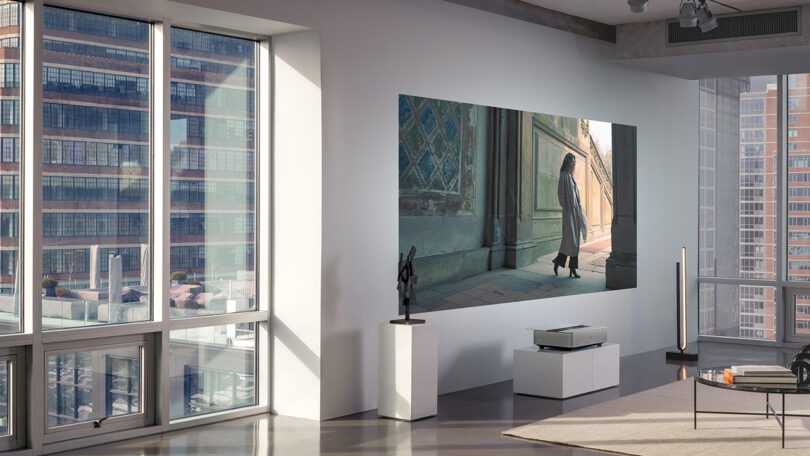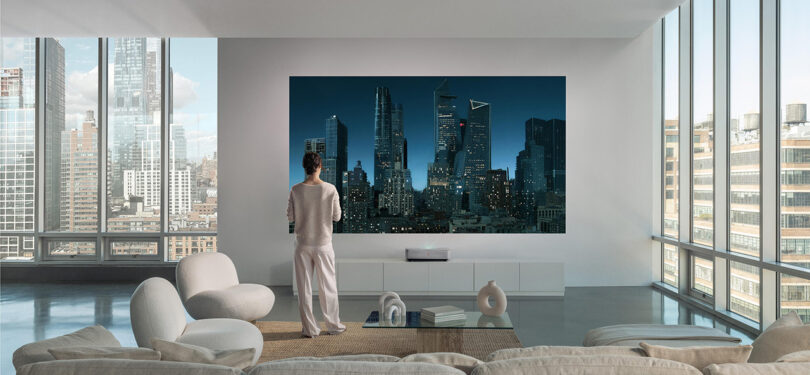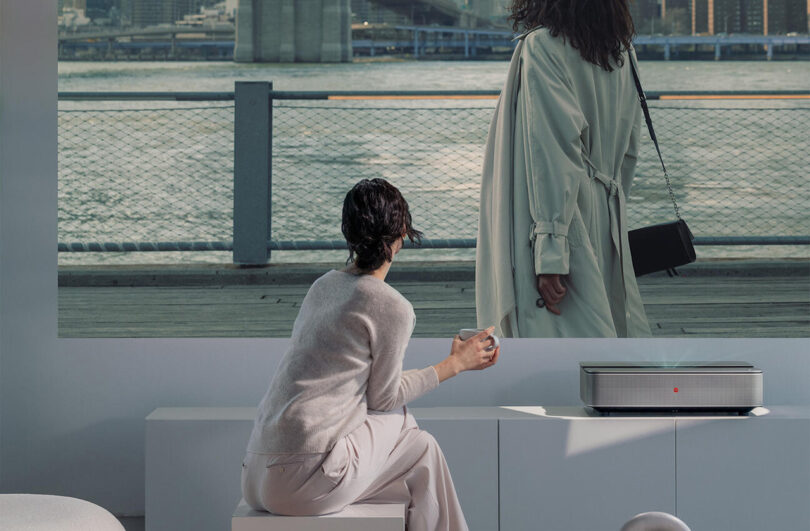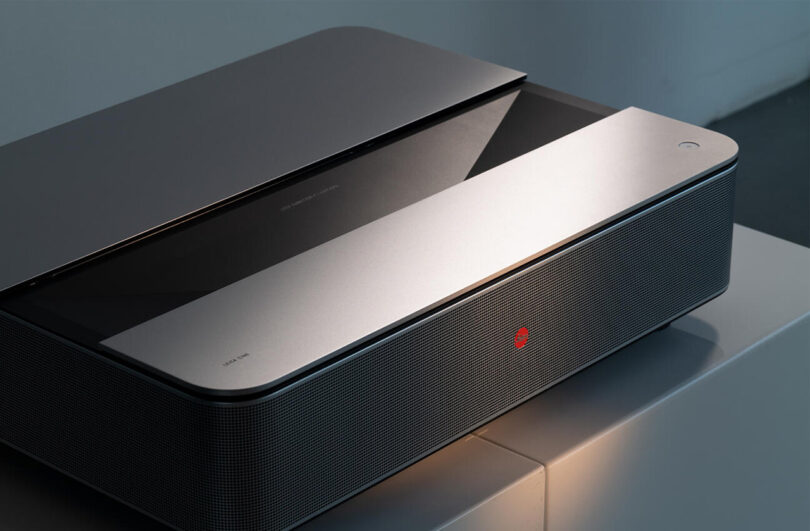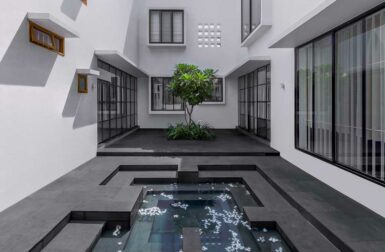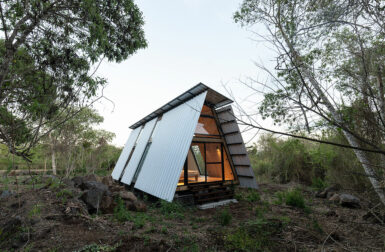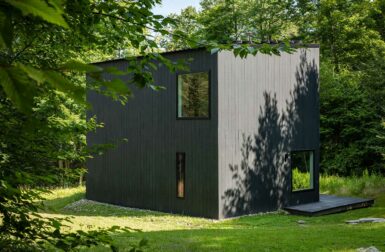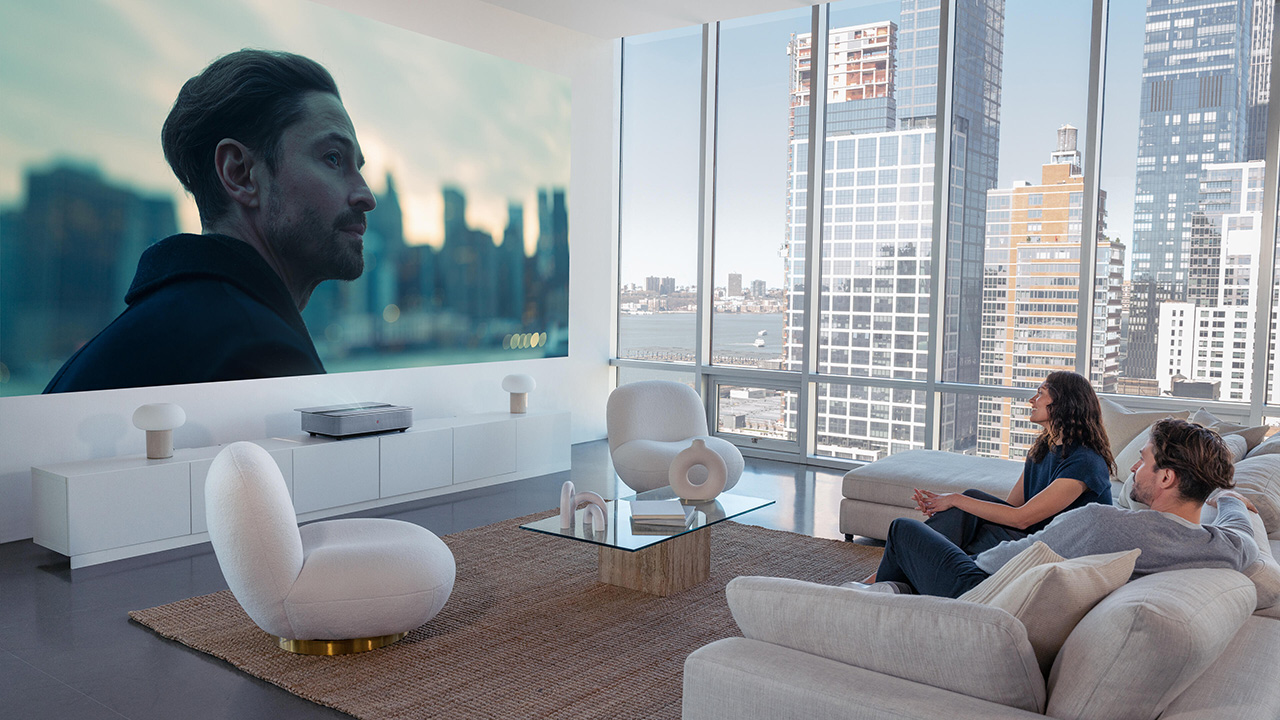
Leica’s iconic red circle logo may stand alone in the realm of photography as one transcending ordinary branding. Leica’s cameras are more closely associated with an aspirational lifestyle than just gear for capturing photos, with a devoted following willing to invest a sizable sum for their combination of precise optical engineering and minimalist design. And now the German company is focusing its lens toward projecting, rather than capturing, images in our living rooms with the arrival of the Leica Cine 1 laser TV.
First announced at last year’s IFA 2022 in Berlin, Germany, Leica Camera AG’s first laser TV garnered a bit of attention for its combination of 4K triple RGB laser technology, Teutonic modern design, and of course, that small yet conspicuous red circle logo. Unlike the LG Cinebeam with its softly decor-friendly approach, or XGIMI’s lamp-as-projector chameleon approach to projectors, the Leica Cine 1 demands a bit of attention. The projector’s perforated silver aluminum case design aligns with Leica’s past efforts in camera design, but it’s also near impossible not to think of the Bauhaus, Dieter Rams catalog of work, alongside Apple’s original 2009 Mac Pro tower design when looking over the precise surfacing and perforated detailing stretching across the projector’s exterior.
Those perforated plates on the sides aren’t just for looks, but designed to improve the projector’s built-in Dolby Atmos surround sound speakers while also allowing the projector sufficient ventilation. And yes, the Cine 1 is just like a Leica camera, outfitted with their signature optics, a Summicron lens.
Wi-fi 6 and Ethernet connectivity are both supported, alongside ports for two HDMI 2.1 (one designated for eARC Support) and one HDMI 2.0 connection, one USB 2.0 port and another USB 3.0, as well as Google TV and Apple Airplay 2 compatibility. The Leica Cine 1 also features a cool automatic dust cover that opens and closes upon command, protecting its Summicron lens when turned off.
One interesting note is, unlike other ultra-short throw systems, the Leica Cine 1 comes in two fixed projection image size options – one set for a 100-inch image, the other, a 120-inch model (there’s also a third 80-inch model available in other markets outside of the United States) – the projector equivalent of a prime lens on a camera. All Cine 1 models output around 2500 lumens. Consider us curious whether this single image size approach is discernibly improved compared to other 4K UST projectors using this single format approach.
The Leica Cine 1 is available now as a 100-inch laser TV for $8,995 or $9,495 as a larger 120-inch option. If you’re looking for the most optimal experience, Leica sells a matching 100 or 120-inch ALR (Ambient Light Rejection) high-contrast screen to eke out the very best picture from the projector.
This post contains affiliate links, so if you make a purchase from an affiliate link, we earn a commission. Thanks for supporting Design Milk!
